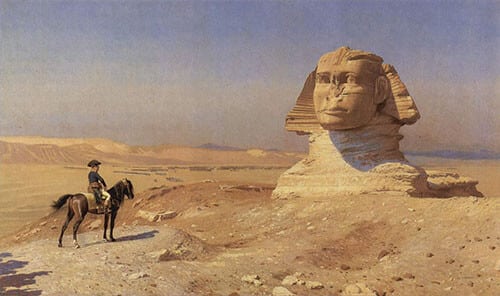The campaign was very peculiar from the start, as the general held a speech to his army before departure, explaining the fact they should respect the local traditions and religion, their personal well-being depending on it. He said the following words:
The peoples we will be living alongside are Muslims; their first article of faith is ‘There is no other god but God, and Mahomet is his prophet.’ Do not contradict them; treat them as you treated the Jews, the Italians; respect their muftis and their imams, as you respected their rabbis and bishops.
Have the same tolerance for the ceremonies prescribed by the Quran, for their mosques, as you had for the convents, for the synagogues, for the religion of Moses and that of Jesus Christ. The Roman legions used to protect all religions. You will here find different customs to those of Europe, you must get accustomed to them.
The people among whom we are going treat women differently to us; but in every country whoever violates one is a monster. Pillaging only enriches a small number of men; it dishonors us, it destroys our resources; it makes enemies of the people who it is in our interest to have as our friends.
The first city we will encounter was built by Alexander [the Great]. We shall find at every step great remains worthy of exciting French emulation.”
But contrary to that, after the French left Alexandria, the library holding invaluable information and art was nothing more than ashes. The motive for this strange atrocity remains unknown because Napoleon was an educated man, with some taste in art and always curious about history or science.
Historians claim that his troops burned down the library not by direct order, but either by accident or because they expected to find material riches inside the impressive building and got angry when they could only find books, which held no interest to them.
UFOlogists, however, say the general gave a silent order to a handful of trustworthy soldiers to set the building on fire under cover of night, in order to destroy knowledge or evidence of something or someone (most of the locals had fled and the building held no strategic interest so no one would investigate).



